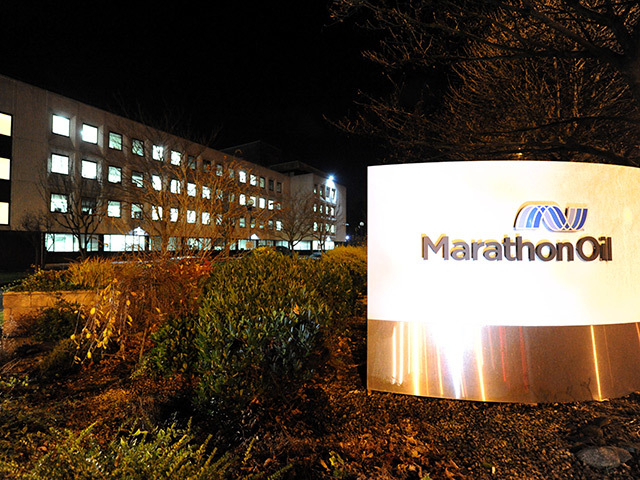
This is the time when the big US oil corporations publish their plans for the year ahead; and of course one is looking for a mention of North Sea investment.
These outlook statements can be used to hide bad news, which is exactly what Marathon Oil has done with a perfunctory line or two about its North Sea assets now being for sale.
Just like that; no message specifically tailored to the UK and Norway where more than 1,000 jobs hinge on the prosperity of assets such as the multi-platform Brae fields complex, or the Alvheim field production hub.
I consider that disrespectful to the North Sea community; most of all loyal employees and contractors.
And why does this sort of news have to break just before folk take their winter breaks?
It’s unsettling, even though Marathon’s assets will likely be snapped up and jobs will probably be secure.
Just recently I visited Carri Lockhart who runs Marathon’s North Sea business. She spoke optimistically. There was not a hint of doubt as to whether or not the company remained committed to this still important offshore province.
Marathon came across as the doughty US player, having just celebrated 25 years of output from the most mature part of the Brae complex, which resembles a “Clapham Junction” of the North Sea because of the large amount of third party production that is processed and transported ashore via its export infrastructure … around 85,000 barrels oil equivalent per day from some 30 fields.
Nothing is forever; we all know that; but it has still come as a surprise from this US mid-ranker that has quietly gone about its business, revealing and saying little across the years; also staying out of the headlines.
Keeping a low profile is a trait at Marathon.
I happen to follow the rise of Kurdistan as an oil and gas power in its own right, despite what the Iraqi government in Baghdad might think.
A herd of majors and minors has sneaked in this northern province of “Greater Iraq” over the past few years, largely by stealth, saying little or nothing. Marathon is among them and the potential oil and gas prizes are enormous..
On this occasion the company refers briefly to Kurdistan in the same end of year statement as it puts the North Sea up for sale in favour of richer pickings elsewhere including US shale plays. You can be sure that very little will ever be said about its Kurdistan interests.
Chevron also refers to Kurdistan in its 2014 outlook note; whilst at the same time saying nothing about Rosebank, which hit oil and gas headlines a few weeks ago when the project was declared sub-economic and would be re-worked.
So, no capital money for Rosebank during 2014, it seems.
I really do wonder how committed Chevron remains to the North Sea.
Recommended for you
